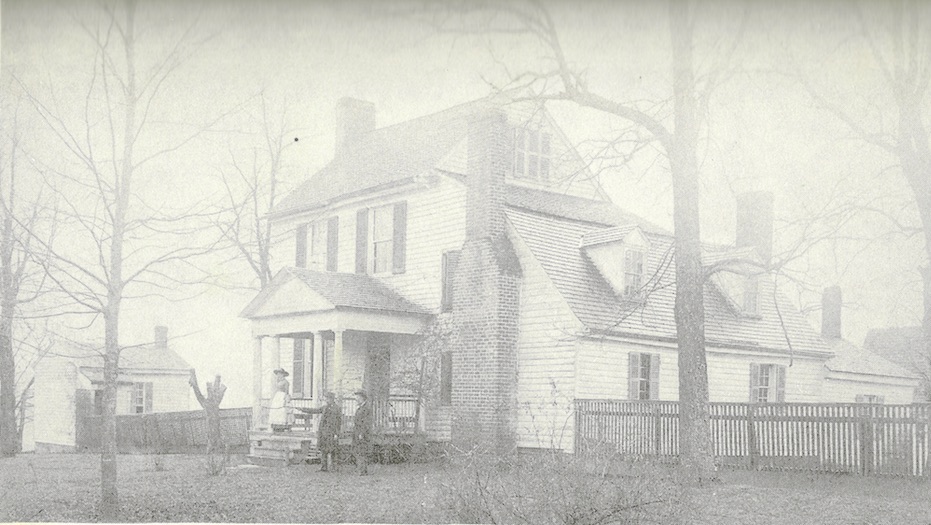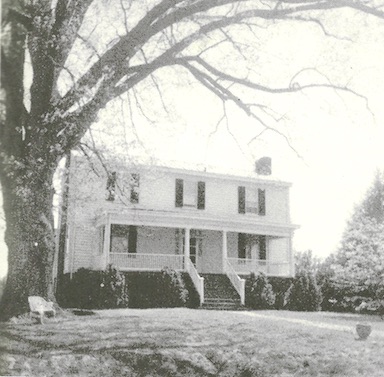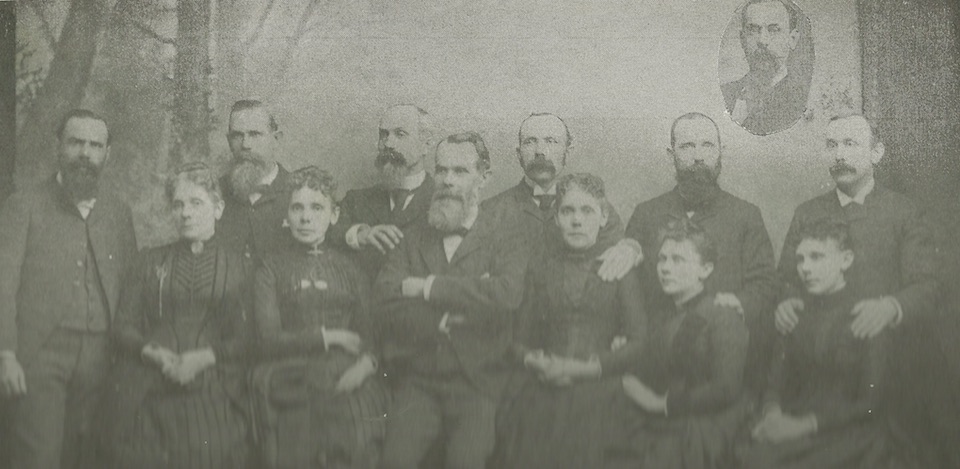A Virginia Boy

Emerging Civil War welcomes back Doug Crenshaw
In June 1862, George McCall’s Division of the Union V Corps was stationed east of Beaver Dam Creek near Mechanicsville, Virginia. It was there to guard the route to the Pamunkey River supply base at White House Landing, and to connect with the anticipated arrival of Irvin McDowell’s corps from Fredericksburg. The Sydnor clan owned several farms in the area, two of which were the homes of the deceased family patriarch, Edward Garland Sydnor (“Oakley Hill”), and one of his sons, William Barrett Sydnor (“Meadow Farm”). At Meadow Farm, William Barrett and his wife raised sixteen children, one of whom was 11-year-old Henry Clinton.
At the approach of Federal troops, nearly all of the daughters were sent away. Most of the sons were in the Confederate army. Only the father, mother, one sister and one son, Henry Clinton, remained at home. Henry would write a memoir of the days the farm was occupied by enemy’s 7th and 11th Pennsylvania Reserves.
As the Yankees began arriving and the last Confederate soldier left the area, Henry’s mother tied a belt around her son’s waist containing the money that was at the house, plus some gold that was “kept sacredly for future needs.” Henry remembered a Federal soldier riding up and asked, “Are there any Rebels around here?” Henry answered that they were not Rebels, but Confederates! “I thought at first they would kill us all, but in a few minutes their conversation with my father convinced me we were in no danger of being shot just for fun.” The officers told Henry’s father that they “would not willfully destroy his property, but he must stay closely upon his premises.”

The next day the soldiers were everywhere, putting up tents and running telegraph wires, and the wagons, “each drawn by four fine mules, seemed to be in the thousands.” The Yankees also occupied the family’s barn. A Confederate battery was stationed across the Chickahominy, and the young boy wondered why it did at not fire the Federal troops near that barn. A Federal officer told him that “the Confederates knew who lived there, and they would not shell the barn or house on that account.” Each day the Confederates “would shell the woods and all around, but never any fell in our yard. A McClellan battery would reply, and when the duel would commence many officers would come into our yard for protection, as they said they knew the shells would not fall there.” Henry was allowed “perfect freedom, so I mingled freely with the officers and men.”
Officers gathered daily on the porch to talk with Henry’s father, and “treated him with the respect his age demanded.” The boy particularly remembered Major Boyd, “who took a great fancy to us all. I have often wished that I might know whether he survived the awful days that followed.”
Two of the family’s slaves, Uncle Moses and Uncle Tom, told Henry that the Yankees had stolen “Ole Major,” his pet goose. When he saw that they had killed it, he cried. A Federal officer took pity and said, “Come with me little Rebel. We are not here to make war on geese, but to take Richmond.” He made the soldiers pay Henry for every goose they had taken, and the boy was allowed to take Old Major and bury him.
One day Henry’s father asked a Union officer for a privilege. “He told him that he was originally a Union man, but Mr. Lincoln’s call for troops to subdue the South had changed him, and six of his sons were in the Confederate Army.“ The officer replied that if my father would take an oath his request would be granted. “After reading it, my father handed it back to him and said with a voice full of fire and emotion and trembling finger pointing toward the Confederate line. ‘I have six sons on yonder hill. If I sign this it will deny me the right to welcome them home; If I sign this it will deny me the right to feed them; If I sign this it will deny me the right to show them love and affection when with God’s will I meet them again. Never, never! How can you ask it?’”

On a nearby hill stood the overseer’s house. He was away in the army, and on one Sunday morning the Union soldiers taunted his wife, saying that they would soon be in Richmond and they would ring the church bells. She replied, asking if they knew the story of Moses. “Well don’t you know the prophet Moses climbed the mount and viewed the promised land, but he never got there!”
Henry remembered that in the afternoons of June 1862 the Yankees would send up their balloons, which he called “monster things.” On the 26th, the battle began, and the family moved into the basement; shells bursting around the house. Around 10:00 that evening the Yankees disappeared. As he walked around the yard the next morning Henry saw a Confederate on a horse in the distance, motioning him to come over. Running toward the soldier, Henry recognized his brother. “He took me up on his horse and carried me to General Longstreet, who asked me many questions about McClellan’s army… Longstreet’s division passed through our yard.”
After the armies had passed, life went on. Many of the slaves had gone off with the Yankees, but the older ones, Uncle Tom and Uncle Moses “stayed with us and shared our joys and sorrows.” In the days that followed, boys in the area would scour the battlefield for bullets and “moulded them into shot to hunt with.”
Henry’s home at Meadow Farm has disappeared. The farm became a housing development, and the house has fallen down. The home of his grandparents, “Oakley Hill” still stands along Cold Harbor Road. Its fields, too, have become a development, but the home stands in the center of it.
Notes:
The article “A Virginia Boy in the Sixties” is available in Confederate Veteran, volume 20, p. 105. Henry Clinton Sydnor was my great-great-great uncle.
Interesting account; thanks !
Great story, Thanks for sharing. Sad to note that the land has been developed.
What became of all the sons and Major Boyd??
The Official Army Register, Vol. III, contains the names of all Pennsylvania officers. There are six Boyds, none of them Majors and none in the Pennsylvania Reserves.
Nice story.
We appreciated reading this article. From our kitchen window in the winter we can look out and see what is left of that home. The county is trying to have the area where the remains of the home is to be rezoned commercial. As someone who has spent many a day walking the deer paths around the remaining structure it was great to read what the home was like during the Civil War rather than just imagine it.
Thank you so much for sharing this. I am doing genealogical research and I am glad to have come across these details! William Barret Sydnor was my great-great-great grandfather.